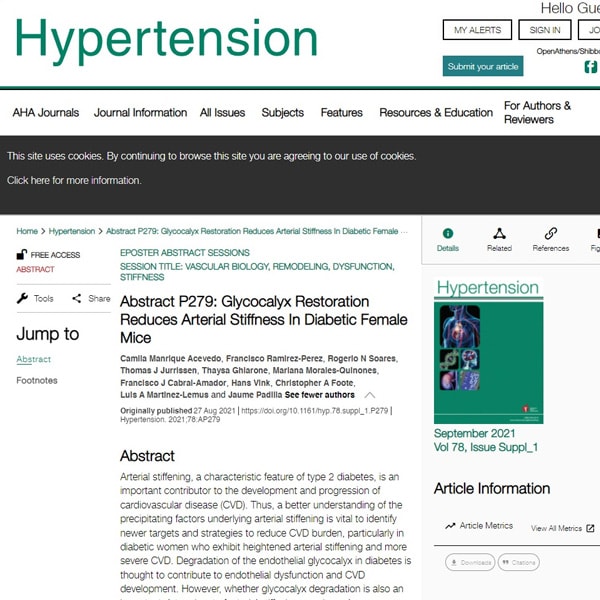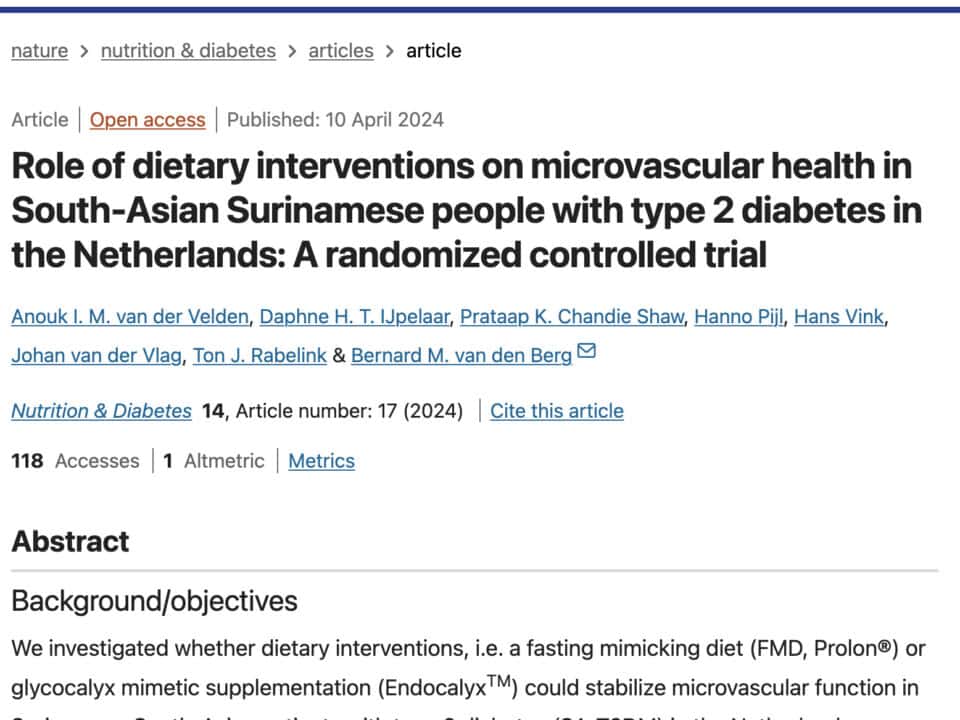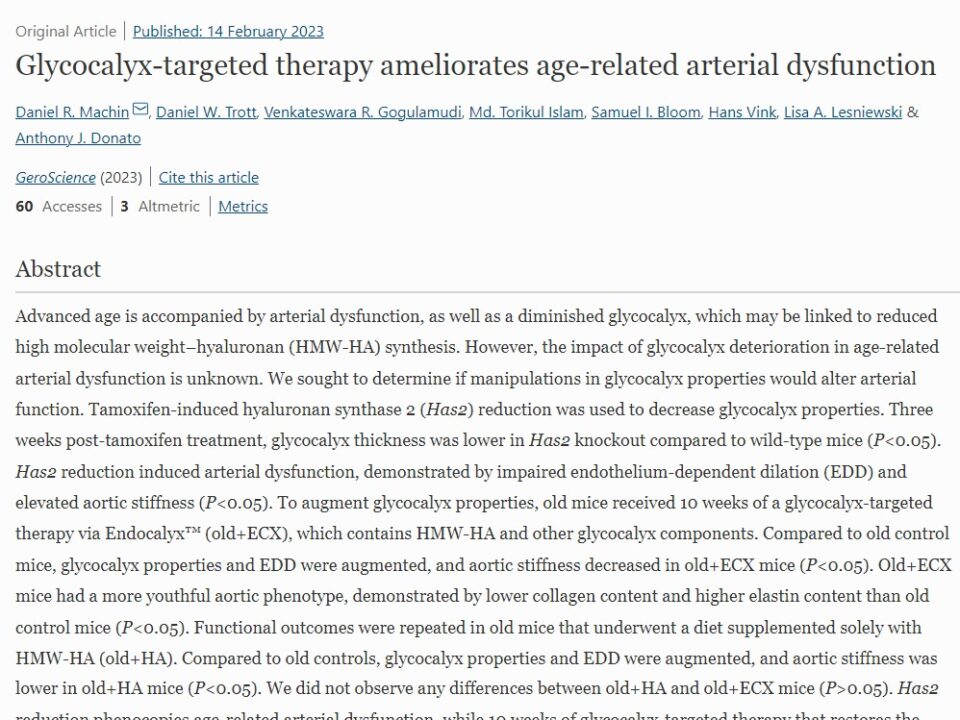Abstract
Arterial stiffening, a characteristic feature of type 2 diabetes, is an important contributor to the development and progression of cardiovascular disease (CVD). Thus, a better understanding of the precipitating factors underlying arterial stiffening is vital to identify newer targets and strategies to reduce CVD burden, particularly in diabetic women who exhibit heightened arterial stiffening and more severe CVD. Degradation of the endothelial glycocalyx in diabetes is thought to contribute to endothelial dysfunction and CVD development. However, whether glycocalyx degradation is also an important determinant of arterial stiffening remains unknown. Herein, we hypothesize that restoration of the glycocalyx with dietary supplementation of glycocalyx precursors (DSGP, including glucosamine sulfate, fucoidan, superoxide dismutase, and high molecular weight hyaluronan; EndocalyxTM) improves endothelial function and lessens arterial stiffness in diabetic female mice. To test this hypothesis, we used 12-week old db/db female mice that were treated with DSGP (100 mg/kg/day) or vehicle (i.e., peanut butter) for four weeks, and an age-matched db/+ cohort as reference control. After euthanasia, we assessed ex vivo aortic stiffness and glycocalyx length via atomic force microscopy. Using pressure myography, we also determined ex vivo mesenteric artery endothelial function and stiffness by measuring flow-mediated dilation and the passive mechanical properties of the arterial wall, respectively. Consistent with our hypothesis, vehicle-treated db/db mice exhibited degradation of the endothelial glycocalyx, impaired endothelium-dependent vasodilation, and increased arterial stiffness when compared with control db/+ females. Moreover, treatment with DSGP was effective at restoring the endothelial glycocalyx in db/db mice. Notably, this restoration of the glycocalyx was accompanied with improvements in endothelial function and reductions in arterial stiffness. Collectively, these findings support the notion that the endothelial glycocalyx should be considered as a putative therapeutic target to reverse arterial stiffening in diabetic females.




